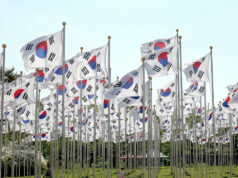‘Third player’ hearing shows service commitments favored — DICT
By Victor V. Saulon, Sub-Editor
TELECOMMUNICATIONS industry stakeholders expressed a preference for service level commitments as the basis for selecting the industry’s third entrant, according to the results of a public consultation Friday.
The Department of Information and Telecommunications Technology (DICT) said 75% of representatives from telecommunications companies, consumer groups, and the public picked highest committed level of service, or HCLoS, as the main selection standard.
The other proposed basis for selection, a frequency auction, was supported by 16.67% of participants at the consultation, while 8.33% abstained.
The selection process has seen the emergence of two proposed terms of reference (ToR), one based on HCLoS favored by the DICT and another based on an auction backed by the Department of Finance (DoF).
The HCLoS standard is a points system for milestones like population coverage, broadband speed and investment within five years, with the points weighted to favor hitting certain milestones earlier in the five-year period.
The DoF, which is a member of the oversight committee for third-player selection, has declared its opposition to a process involving the assignment of points for meeting certain commitments — the so-called “beauty contest,” and has declared that state assets such as frequency spectrum must be auctioned instead of allocated to the third player at no charge.
Acting DICT Secretary Eliseo M. Rio, Jr. said the vote was a way to take the pulse of stakeholders, including would-be investors.
“With this result we hope to move forward (with finalizing) the terms of reference for the HCLoS,” he told participants at the public consultation.
He said the next step is to come up with a report that he would present to the oversight committee, which is composed of representatives from the DICT, DoF, Office of the Executive Secretary, and the National Security Adviser.
Mr. Rio described the report as a result of a market study that paves the way for the department to go ahead with the process.
“If everything goes well, and are no major setbacks, we can have the third telco by end of September or early October,” he told reporters.
The process he was referring to involves the National Telecommunications Commission publishing the final version of the ToR.
“And then this (ToR) will be subjected to another public hearing, but this one will now be formal. It has the same weight as when you are testifying in court,” he said.
The public hearing will incorporate further improvements to the ToR, which will become final about 30 days after the first publication in a newspaper of national circulation. After 15 days, a series of public hearings will help shape the final version of the ToR.
“That will start the bidding process,” he said. “The contenders now can buy the bidding documents and they will be based on the terms of reference.”
“We’ll give them two months to come up with their bidding documents. That is the time that they will start to form their consortium,” he added.
Mr. Rio said the 15 telcos that participated represented companies with existing telecommunications franchises. He said these entities lack the experience and need for them to partner with foreign companies.
“Right now we have about five foreign companies [that] are interested so they can chose among the 15 [telcos],” he said.
He said he hopes there will be no strong objections to HCLoS going forward.
Asked about a possible conflict with the preference of Finance Secretary Carlos G. Dominguez III for an auction, Mr. Rio said: “This is a DICT affair. In other words, I have full responsibility and therefore I have to decide that I have to go forward because I am being instructed also by the President.”
He said Mr. Dominguez is welcome to come up with his own position “but more or less as far as the DICT is concerned, we have I think enough data, we have enough encouragement to go ahead with the highest committed level of service.”
Sought for comment, Renato B. Garcia, executive vice-president of Philippine Telegraph and Telephone Corp., said he favors HCLoS.
“Any telecom guy will tell you, when you do network planning it’s always the least-cost solution… And all these other proposals [are] contrary to the basic principle,” he said.
Asked if PT&T will submit a bid, he said: “Of course.” He added that the company will need a foreign partner with the technical expertise.
“All of those are under discussion,” he said. “We’re talking to all — American, European, Chinese… Korean.”
Victorio Mario A. Dimagiba, who heads consumer advocacy group Laban Konsyumer Inc., said he prefers HCLoS because the third player will be able to compete if it offers consumers improved services compared with incumbents Smart Communications, Inc., a unit of PLDT, Inc., and Globe Telecom, Inc.
Hastings Holdings, Inc., a unit of PLDT Beneficial Trust Fund subsidiary MediaQuest Holdings, Inc., has a stake in BusinessWorld through the Philippine Star Group, which it controls.



